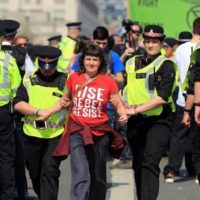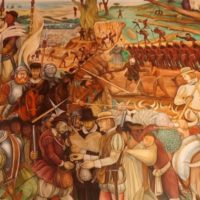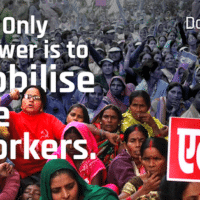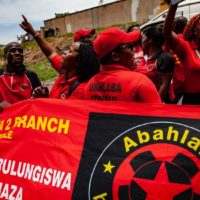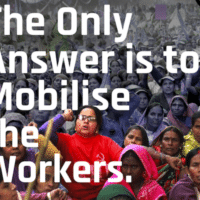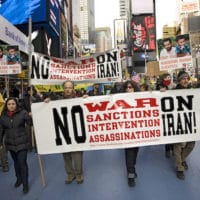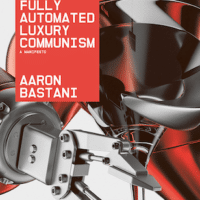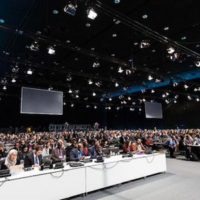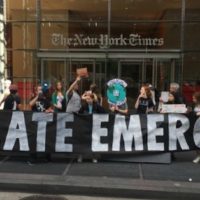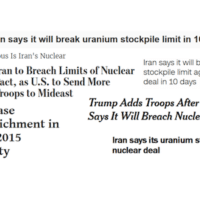-
Policing in the Anthropocene
How will the police respond to environmental direct action groups like Extinction Rebellion as climate breakdown reaches critical mass?
-
The debate over inequality
The debate over inequality has become hotter world-wide. While Trump had introduced substantial tax cuts for the rich in 2017, and Britain’s Boris Johnson, the front-runner to succeed Teresa May, has promised to do the same if he becomes Prime Minister, there are strong proposals for taxing the rich which have also been mooted. Bernie Sanders had such a proposal for the U.S. during the time that he was seeking the Presidential nomination of the Democratic Party.
-
Freedom and slavery: the birth of capital
We are frequently told that capitalism equals ‘freedom’; that it is the organic product of ‘human nature’. But far from arising naturally, the birth of the ‘free’ market is built on violence, dispossession, and enslavement.
-
Religion is the sigh of the oppressed creature
On the one hand, people who spend most of their time working develop an understanding of the ‘practical transformation of the world’. This framework is implicit in the workers’ activity, since the worker–given the theft of their time–is often prevented from having a ‘clear theoretical consciousness of this practical activity’.
-
How working-class movements are moving beyond the confines of capitalism
The context for organizing today that faces working people across the world is one that must grapple with the challenges posed by a decentralized production process and a well-organized ruling class.
-
Numbers crushing working people
It is vital that working people know the score. Only by accurate and complete economic representations can an informed electorate pursue political strategies and tactics that benefit all working people.
-
Our globe is burning!
Peter Linebaugh’s book comes with a long subtitle, a pithy summary of its contents: A Tale at the Crossroads of Commons and Closure, of Love and Terror, of Race and Class, of Kate and Ned Despard. His timeframe is the period between 1789 and 1804 when, in his view, a series of connected events took place in England, Ireland, France, the Caribbean and North America that formed an Atlantic crucible forging the capitalist world we have lived in since.
-
Dossier 18: The only answer is to mobilise the workers
Tricontinental: Institute for Social Research launches its eighteenth dossier, “The Only Answer Is to Mobilize the Workers.” The challenges facing Indian workers and their strategies to fight back are explained through the insights and expertise of K. Hemalata, president of the Center of Indian Trade Unions (CITU).
-
Imperial overreach in Iran
In the last week of June 2019, as this article was being written, tensions between the U.S. and Iranian governments escalated sharply. On June 20, 2019, in response to aggressive U.S. actions, including the mobilization of troops, naval forces, and aerial provocations, Iran shot down a U.S. surveillance drone flying near the Iranian border.
-
British firm ‘hosts canned lion hunts’
Blackthorn Safaris, based in Oswestry, hosts ‘canned’ hunts on an estate 40 miles north of the mining town of Kimberly, in South Africa’s Northern Cape district.
-
Tech privacy pioneer Ola Bini released after 70 days of extrajudicial detention in Ecuador
After 70 days in preventive detention without formal charges, Ola Bini’s request for habeas corpus was granted, and shortly after, he was released from prison.
-
My friend is in a prison in Ecuador
This article was first published on June 10, 2019 in the Daily Hampshire Gazette. Two months ago, the police in Ecuador arrested my friend Ola Bini at Quito airport. Ola was on his way to Japan for a two-week martial arts course. He’s a software developer from Sweden who has lived in Ecuador since 2013. […]
-
The hybrid war against Iran
Trump might not have sent in a suite of missiles to hit Iran last week, but the United States has—of course—already opened up a certain kind of war against Iran.
-
Gee Whiz! Communism is sure gonna be keen!
When I was ten years old, I read and re-read a stack of decades-old Modern Mechanix magazines that I found in my grandfather’s basement. Throughout the Great Depression, MM regaled its readers with breathless accounts of technological marvels that were going to change the world, very soon.
-
In Protest: The Sci-Fi Contribution to Arabic Resistance Literature
Palestinian resistance literature helped break the bounds of many of the literary taboos holding Arabic literature back. A whole new genre within a genre developed with the Palestinian intifada. It is a shame that there is no science fiction as future-oriented as Palestinian resistance literature is.
-
The UN climate talks are coming to Britain. The climate justice movement will be ready
This week it was announced that the 2020 United Nations climate change conference–the so-called ‘Conference of the Parties’ (COP)–is set to take place in the UK.
-
Discussing the Black Panthers
With the development of new anti-racist movements, there is a renewed interest in the history of the Black Panther Party. Shaun Harkin spoke to Donna Murch—historian and author of ‘Living for the City’—about the overlooked aspects of the Panthers, from their founding days, to their focus on political education.
-
‘Report the urgency! This is a climate emergency!’
“This is the biggest crisis in human history. What are we going to tell our children when they ask us: why didn’t we do anything to stop it while we still had time?”
-
Marxism, space and a few urban questions: a rough guide to the English language Lliterature
Starting in the late 1960s, ‘radical geography’ became a crucial avenue of intellectual innovation in contemporary Marxism. For a generation, its basic orientation was two-fold: (1) politicise ‘space’ by challenging the stranglehold of specialists (architects, urban planners, designers, military planners, regional and development officials) in the spatial disciplines, and (2) insist, simultaneously, on the importance of spatial questions within the various currents of the left.
-
Iran ‘violates’ nuclear deal, after U.S. ‘withdraws’
Quick question: Does the U.S. ever break, breach or violate its international agreements?

